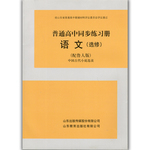题目内容
According to researchers, money can buy happiness, but only if you spend it on someone else.
Spending as little as $5 a day on someone else could significantly bring you happiness, the team at the University of British Columbia and Harvard Business School found.
Their experiments on more than 630 Americans showed they were measurably(适度地) happier when they spent money on others---even if they thought spending the money on themselves would make them happier.
"We wanted to test our theory that how people spend their money is at least as important as how much money they earn," said Elizabeth Dunn, a psychologist at the University of British Columbia.
They asked their 600 volunteers first to rate their general happiness, report their annual income and detail their monthly spending including bills, gifts for themselves, gifts for others and donations to charity(慈善机构).
"Regardless of how much income each person made, those who spent money on others reported greater happiness, while those who spent more on themselves did not," Dunn said in a statement.
Dunn's team also surveyed(调查)16 employees at a company in Boston before and after they received an annual profit-sharing bonus(奖金) of between 8,000.
"Employees who devoted more of their bonus to pro-social(有益社会的) spending experienced greater happiness after receiving the bonus, and the manner in which they spent that bonus was a more important predictor(预示) of their happiness than the size of the bonus itself," they wrote in their report, published in the journal Science.
They gave their volunteers 20 and half got clear instructions on how to spend it.Those who spent the money on someone or something else reported feeling happier about it.
"These findings suggest that very minor alterations(改动) in spending allocations(分配) --- as little as $5 --- may be enough to produce real gains in happiness on a given day," Dunn said.
1.According to the passage,_____________.
A. the more money you spend on others, the happier you are
B. spending money on others can bring you happiness
C. Elizabeth Dunn is a psychologist from Harvest Business School
D. six hundred volunteers took part in the experiment
2.The 16 employees mentioned in the passage _________.
A. were given clear instructions on how to spend the bonus
B. had more happiness than the size of the bonus itself
C. experienced greater happiness after receiving their bonus
D. felt happier after they contributed much of the bonus to charities
3.Dunn’s statement suggested that ______________.
A.those who spent money on others felt happier no matter how much they earned
B.those who spent more money on themselves felt happier
C.people thought spending money could make themselves happier
D.the money spent was as important as the money earned
4.The best title of this passage is ___________.
A. Experiment on Money Spending
B. Devoting Your Money to Charities
C. Spending Money on Others Makes One Happier
D. Bonus and Pro-social Spending
 海淀黄冈名师导航系列答案
海淀黄冈名师导航系列答案 普通高中同步练习册系列答案
普通高中同步练习册系列答案All bookings made before 12 September will receive free travel insurance for
the entire family! ** Insurance is issued by Live Life Insurance Group.

10% OFF ALL BOOKINGS
for departures from 5 to 11 September
* Child must be accompanied by two paying adults.
** Terms and conditions apply.
1.One of the benefits mentioned in, the advertisement is .
A. a free flight to any destination in the world
B. 30% off any book purchased at Ruby Bookstore
C. a discount on any course at Tanya Language School
D. a free bowl of dessert at any restaurant at the airport
2.Which of the following bookings may receive the most benefits?
A.
Booking date | Departure date |
September 13 | September 18 |
B.
Booking date | Departure date |
August 15 | September 4 |
C.
Booking date | Departure date |
September 2 | September 12 |
D.
Booking date | Departure date |
August 16 | September 8 |
3.Which of the following is TRUE according to the advertisement?
A. Club members enjoy free travel insurance for any flight.
B. You need to pay $50 to sign up a child under the age of 12 for the club.
C. The advertisement is intended for students of all ages.
D. Any child must be accompanied by at least one paying adult.
4.Where is the passage probably taken from _____________?
A. A magazine. B.A newspaper.
C. A report. D. A website.


